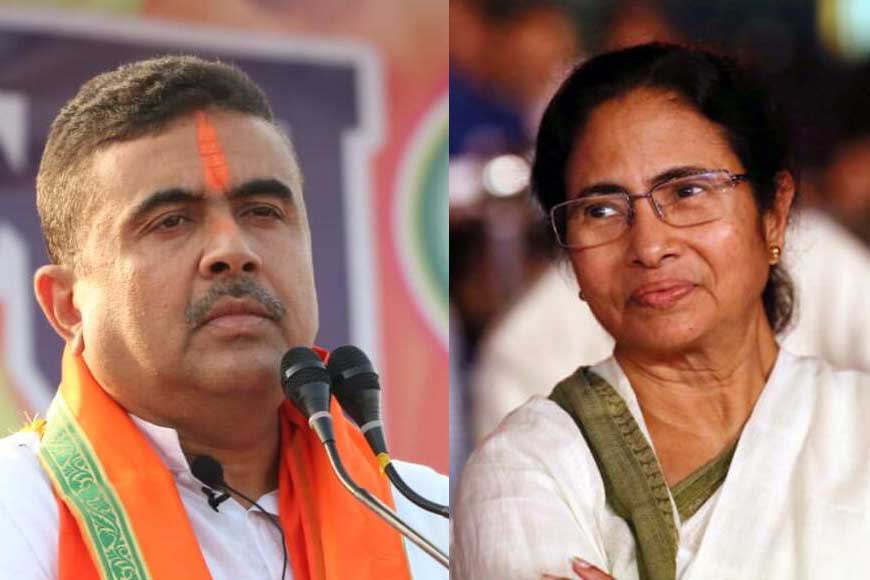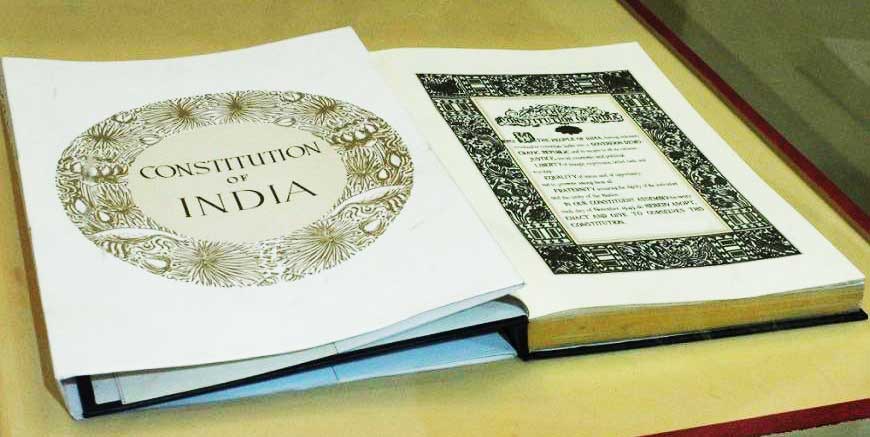West Bengal 2021: ‘Bharat Mata’ vs. ‘son of the soil’

As Bengal gears up to elect yet another Legislative Assembly, Nandigram in Purba Medinipur district has become the constituency to watch for various reasons. The biggest of them, of course, is the tussle between Chief Minister Mamata Banerjee and Suvendu Adhikari, now of the BJP, but until recently a trusted lieutenant of the Trinamool Congress (TMC). The Constitution of India stipulates that any citizen of India may contest elections from any constituency in the country, provided they have a permanent address in the state concerned.
Thus it was that Jawaharlal Nehru, a Kashmiri by birth, would contest from Phulpur in Uttar Pradesh. And Atal Bihari Vajpayee, a native of Madhya Pradesh, would contest from Lucknow, once again in Uttar Pradesh. Manmohan Singh was nominated to the Rajya Sabha from Assam, while Narendra Modi of Gujarat is the winning candidate from Benaras, Uttar Pradesh. All of them have occupied the Prime Minister’s chair at various times.
Essentially, that slogan means that this nation, this piece of land called Bharat, belongs to every Indian. If so, then Mamata ought to fit right into Nandigram. She is certainly not an outsider, whatever else she may be. After all, nowhere does the Constitution say that any particular area can become the fiefdom of any particular family.
In that context, there is nothing technically wrong in Mamata Banerjee or Suvendu Adhikari contesting from Nandigram. Questions have been raised nonetheless. In particular, Adhikari and his followers have made Mamata’s ‘outsider’ status something of a trump card. How an outsider? Answer, Mamata’s traditional seat being Bhawanipur in Kolkata, she apparently has no business being in Nandigram. What makes this argument especially hard to accept is Adhikari’s recent penchant for trotting out one of the favourite slogans of his new party - ‘Bharat Mata ki jai’.

Essentially, that slogan means that this nation, this piece of land called Bharat, belongs to every Indian. If so, then Mamata ought to fit right into Nandigram. She is certainly not an outsider, whatever else she may be. After all, nowhere does the Constitution say that any particular area can become the fiefdom of any particular family. However, Adhikari and his father have created just such an impression in their district. Not merely when it comes to winning Lok Sabha or Vidhan Sabha elections, but also in the matter of state cabinet berths. As many as four members of their family are beneficiaries of this happy situation. In that respect, no other member of Mamata’s family except her ‘bhaipo’ (nephew) has entered public life as a people’s representative or administrative official.
Why, despite all of this, Adhikari saw fit to shun TMC, is something only he can explain. His election campaign makes no mention of the tangible benefits he has received as a TMC member. Rather, he has spearheaded the whisper campaign about Mamata’s ‘outsider’ status, as opposed to his own ‘son of the soil’ antecedents. And he’s following all this up with ‘Bharat Mata ki jai’.
Also read : En route to the burning ground?
History, however, has shown us that a son or daughter of the soil need not necessarily be all conquering. At least, not in the electoral history of this state. In 1946, a year before Independence, undivided Bengal held Assembly elections for the last time. One of the candidates from Chittagong (Chattagram) was firebrand freedom fighter Kalpana Dutta (Joshi), famed for her participation in the Chittagong Armoury Raid, and a daughter of the soil too. Her victory, of course, was a foregone conclusion. And yet, her eventual defeat remains memorable in the annals of Bengal politics. At the same time, relative unknowns at the time, such as Jyoti Basu, Rupnarayan Ray and Ratanlal Brahman, all representing the Communist Party like her, won from their constituencies to become members of the Assembly.
Or take the 1967 elections, when Congressman and Chief Minister Prafulla Chandra Sen contested from Arambagh in Hooghly, once again as a son of the soil or ‘bhumi putra’. Opposite him stood the so-called ‘outsider’ Ajoy Kumar Mukherjee of the Bangla Congress, then part of the United Front alliance. Sen’s eventual shock defeat to Mukherjee who went on to become Chief Minister, once again, is talked about even today.
While Suvendu Adhikari may be unaware of this, his father Sisir ought to recall the occasion in 1969, when V.K. Krishna Menon contested a Lok Sabha by-election as an Independent candidate from Medinipur, which the Adhikaris have come to consider as ‘their’ district. Against all odds, the outsider Menon, a long-time candidate from Mumbai, defeated a ‘son of the soil’ Congress candidate to win the by-election by more than one lakh votes.
In short, just as Ajoy Mukherjee from the Adhikaris’ Medinipur district successfully defeated Prafulla Sen in Arambagh, so Menon from Mumbai came to Medinipur and won over a local candidate. This doesn’t apply only to Medinipur, of course, this is the greatness of India’s democracy. There’s nothing to indicate that the moment a son or daughter of the soil appears, voters put their blinkers on and line up to vote for them.










